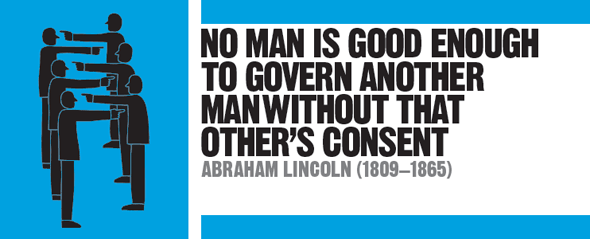
IN CONTEXT
Abolitionism
Equal rights
1776 The Constitution of the United States establishes the new republic.
1789 In the French Revolution the Declaration of Rights states that “men are born and remain free and equal in rights.”
1860 Lincoln’s election as the 16th US president provokes the secession of Southern states in defense of their right to maintain slavery.
1865 With the surrender of General Robert E. Lee of the Confederacy, the US Civil War ends in victory for the Union.
1964 The US Civil Rights Act bans job discrimination on the basis of “race, color, religion, or national origin.”
The foundation of the United States of America after the Revolutionary War against Britain left the nature of the new republic unresolved. Although the country was formally committed to the equality of “all men” through the Declaration of Independence of 1776, slavery saw millions of Africans transported across the Atlantic to plantations throughout the Southern states. The 1820 Missouri Compromise outlawed slavery in the Northern states, but not in the South.
"One section of our country believes slavery is right and ought to be extended, while the other believes it is wrong and ought not to be extended."
Abraham Lincoln
Abraham Lincoln’s statement that “no man is good enough to govern another man, without that other’s consent” comes from a speech of 1854. He argued against the right of states to maintain their own laws, by contesting that the foundation of the United States on the right to individual liberty overrode the right to “self-government.” The republic was built on liberty and equality, not on political convenience or as a compromise among states that retained their own authority. Considered a moderate opponent of slavery, Lincoln had previously argued against extending slavery, but not for abolishing it. Yet this speech heralds the defense of republican virtues that became the rallying call for Northern states when the Civil War erupted in 1861. Lincoln’s message became more radical, and led to the Emancipation Proclamation of 1863 and the outlawing of slavery across the United States in 1865.
See also: Hugo Grotius • Jean-Jacques Rousseau • Thomas Jefferson • John C. Calhoun
